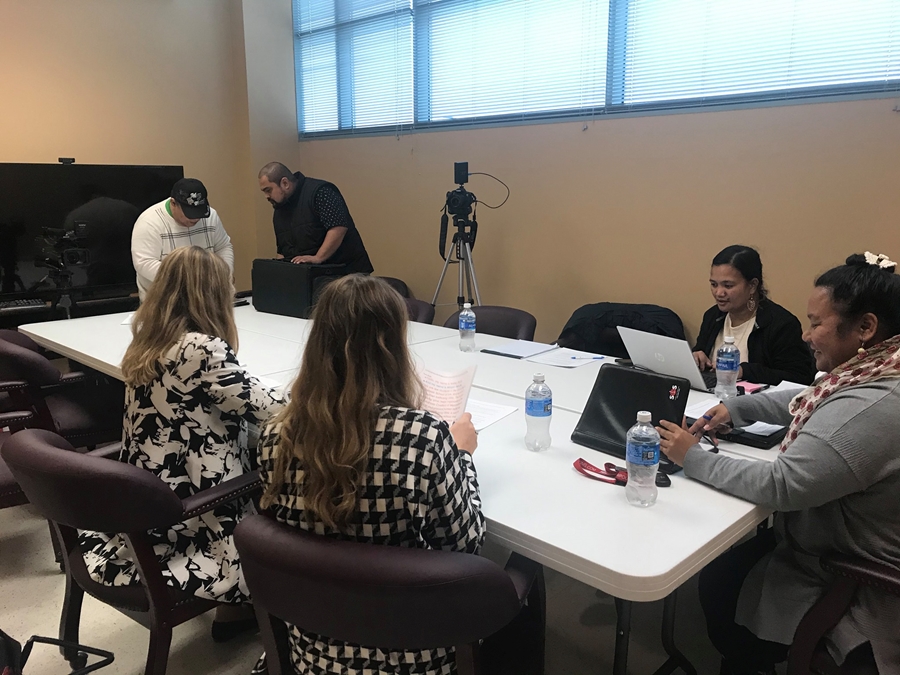
FAYETTEVILLE, Ark. – University of Arkansas law students shared their knowledge about human trafficking with the Marshallese community in Northwest Arkansas and health care providers this semester. The projects were part of students' work in the Human Trafficking Clinic, one of six clinic opportunities available to law students as part of the School of Law Legal Clinic.
In November, students Amber Smith and Morgan Woelke provided training to thousands of members of the Marshallese community. They discussed what human trafficking is, how to identify it, the rights of trafficked individuals, and how to get help or help others who may be experiencing human trafficking.
Part of a strategic collaboration between the law school's Human Trafficking Clinic and the Arkansas Coalition of Marshallese, the students developed the hour-long training and delivered it via Facebook Live. Melisa Laelan, founder and executive director of Arkansas Coalition of Marshallese, hosted the event and provided interpretation during the live training. Local radio station KMRW 98.9 FM recorded and broadcasted the training, which remains available for others to watch and share on social media. Two weeks after its debut, it had been viewed 26,000 times and shared nearly 200 times.
Another team of Human Trafficking Clinic students, Anna Broadaway and Allison Peregory, served as consultants for Mercy Health System. This semester, they drafted a white paper and presented recommendations for how Mercy's network of hospitals and clinics can best identify and address human trafficking among its patients.
"Law school clinic experiences are designed to help our students integrate their classroom learning with practical lawyering experience, to prepare them to be effective attorneys and engaged members of the community, and to provide free legal services to those who cannot otherwise access them," said Annie Smith, professor of law and director of the Human Trafficking Clinic.
The Human Trafficking Clinic seeks to achieve these goals by partnering with local and national organizations to increase their capacity to address trafficking.
"There is a lot of confusion about what human trafficking actually is," Woelke said. "People often equate human trafficking with sex trafficking, but it also includes labor trafficking. And there is also an assumption that a person has to be kidnapped, physically restrained or injured. These things simply aren't true."
There are many myths surrounding human trafficking. Human traffickers do not typically use weapons, and people do not have to be transported across a border — in fact, no movement of any kind is required. Most people who experience trafficking are not physically locked up by their traffickers.
"Human trafficking happens when someone uses force, fraud or coercion to make another person work, to make an adult to perform a commercial sex act, or anytime someone under 18 does a commercial sex act," Amber Smith said.
Force, fraud and coercion can take many forms including:
- Making false promises about work or working conditions
- Threatening to arrest, blacklist, deport or otherwise harm someone
- Holding someone's visa, drivers license or other important documents
- Claiming a debt is owed to the trafficker that must be worked off
- Physical force or threatening physical force
Learn more about the law school's Human Trafficking Clinic and how to recognize human trafficking, or watch the human trafficking training. If you or someone you know might be experiencing human trafficking, call the National Human Trafficking Hotline at 888-737-3888 or text 233-733.
Contacts
Darinda Sharp, director of communications
School of Law
479-575-7417,